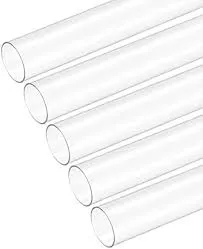Nov . 22, 2024 21:56 Back to list
black hdpe pipe
Understanding Black HDPE Pipes A Comprehensive Overview
High-Density Polyethylene (HDPE) pipes have gained significant popularity in various industries due to their durability, versatility, and resistance to corrosion and chemicals. Among the many types of HDPE pipes available in the market, black HDPE pipes stand out for their unique properties and applications. This article delves into the significance, applications, and benefits of black HDPE pipes, offering insights into why they have become the preferred choice for many industrial and municipal projects.
What are Black HDPE Pipes?
Black HDPE pipes are produced from high-density polyethylene resin, characterized by their high strength-to-density ratio. They are typically manufactured using advanced extrusion techniques, resulting in pipes that are lightweight yet robust. The black coloration is not merely aesthetic; it often contains carbon black, which is vital for UV stabilization. This feature allows the pipes to withstand prolonged exposure to sunlight without degrading, making them suitable for outdoor applications.
Applications of Black HDPE Pipes
The versatility of black HDPE pipes allows for a broad range of applications
1. Water Supply Systems Black HDPE pipes are commonly utilized in municipal water supply systems due to their ability to handle high pressures and resist corrosion. They are also used for irrigation systems in agriculture, ensuring efficient water delivery without contamination.
2. Wastewater Management These pipes are ideal for sewage and wastewater applications, as they do not corrode like metal pipes and can handle a variety of waste materials. Their smooth interior surface also reduces the risk of clogging.
3. Industrial Applications The chemical resistance of black HDPE pipes makes them suitable for transporting various chemicals and hazardous materials in industrial settings. They can withstand harsh environments, making them a reliable choice for processing plants.
4. Telecommunications Black HDPE pipes are often used as conduit in the telecommunications industry to protect fiber optic cables. Their lightweight and flexibility allow for easier installation.
5. Mining In the mining sector, black HDPE pipes are employed for slurry transport due to their strength and resistance to abrasion.
black hdpe pipe

Benefits of Black HDPE Pipes
Investing in black HDPE pipes comes with numerous advantages
- Durability Black HDPE pipes have a long service life, often exceeding 50 years. They can endure extreme temperatures, pressure variations, and harsh environmental conditions without significant degradation.
- Lightweight and Easy Handling Compared to traditional materials such as steel and concrete, black HDPE pipes are much lighter, which simplifies transportation and installation processes. This property can lead to reduced labor costs and faster project completion times.
- Resistance to Corrosion Unlike metal pipes, black HDPE pipes do not corrode, rust, or scale, which helps maintain a consistent flow and reduces maintenance costs over time.
- Flexibility The flexibility of black HDPE pipes allows for easy bending and installation in tight spaces, which is particularly beneficial in complex projects.
- Environmental Impact HDPE is a recyclable material, contributing to reduced environmental waste. The manufacturing process has a lower carbon footprint compared to traditional pipe materials, making it a more eco-friendly option.
- Cost-Effectiveness Despite a higher initial investment compared to some alternatives, the long lifespan, low maintenance, and operational efficiency often result in lower overall costs in the long run.
Conclusion
Black HDPE pipes are an excellent choice for a diversified range of applications, from municipal water systems to industrial chemical transport. Their durability, corrosion resistance, and flexibility provide significant advantages over traditional piping materials. As industries continue to seek sustainable and efficient solutions, the reliance on black HDPE pipes is likely to grow, positioning them as a cornerstone of modern infrastructure. Whether you are an engineer, contractor, or decision-maker, considering black HDPE pipes for your next project could lead to enhanced performance and cost savings, setting the foundation for a more resilient future.
-
Durable PP Rigid Sheet: Lightweight, Chemical Resistant Solutions
NewsAug.21,2025
-
PVC Grey Sheet for Extraction: Chemical Resistant & Durable
NewsAug.19,2025
-
Durable PVC Pipe Fittings for Plumbing & Irrigation Needs
NewsAug.18,2025
-
HDPE Steel Belt Reinforced Spiral Corrugated Pipe | High Strength
NewsAug.17,2025
-
HDPE Pipe Fittings: Durable, Leak-Proof Solutions
NewsAug.16,2025
-
Premium CPVC Sheet: High-Temp & Chemical Resistant Solutions
NewsAug.15,2025

